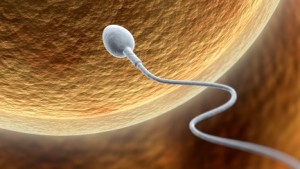How Does Diabetes Affect Your Sperm Count?
 A new study by the Jaslok Hospital and Research Centre in Mumbai has discovered that diabetes may increase your risk of damage to your sperm, which could result in infertility in some cases. The DNA damage that occurs is more than double than in those who are not suffering with the disease, with both the number of sperm and their mobility and movement affected. Diabetes is a condition which affects millions of people around the world, thanks to today’s unhealthy lifestyle of a poor diet and lack of exercise.
A new study by the Jaslok Hospital and Research Centre in Mumbai has discovered that diabetes may increase your risk of damage to your sperm, which could result in infertility in some cases. The DNA damage that occurs is more than double than in those who are not suffering with the disease, with both the number of sperm and their mobility and movement affected. Diabetes is a condition which affects millions of people around the world, thanks to today’s unhealthy lifestyle of a poor diet and lack of exercise.
It was found that diabetic men were just under three times more likely to suffer from DNA damage to the sperm, known as sperm apoptosis, than non-diabetics. This leads to more miscarriages due to fragmented sperm – it’s also a known fact that diabetic men take longer to result in pregnancy in their partners than those without the condition. This has been linked to oxidative stress damaging the DNA which causes accelerated ions in the body to kill cells.
The study looked at 60 diabetic patients and 78 non-diabetics in the age bracket of 25 to 45 years old. All of the men in the group had been newly diagnosed with the condition and had attended the clinic for infertility treatment. Scientists found that the DNA damage in the diabetic group was 15.9 percent, in comparison to 6.4 percent in the non-diabetic patients. It was found that the sperms motility was at 22 percent against 46 percent in healthy patients – in the diabetic group, 92 percent of the men had an abnormal sperm structure, compared to just 11 percent of healthy men in the other group. The study has enabled researchers to navigate a clearer route for testing infertility in their patients, by looking at the DNA fragmentation in every diabetic patient.

Comments are closed.